MercoPress. South Atlantic News Agency
Economy
-
Thursday, June 1st 2023 - 10:20 UTC
Brazil's surplus falls 47% interannually in first four months of 2023

Brazil's Central Bank (BCB) reported Wednesday that the South American country's public sector accounts (federal government, states and municipalities, and state-owned companies) recorded a primary surplus of R$ 78.7 billion reais (US$ 15.515 billion) in the first four months of 2023, which represented a 47% YoY drop.
-
Thursday, June 1st 2023 - 09:56 UTC
Falklands adjusts Government Reserves Policy to 1,5 times (from 2,5) departmental operating expenditure

Following the sitting of the Executive Council on Wednesday 10 May, a paper was approved to update the Government’s Reserves Policy to hold 1.5 times adjusted departmental operating expenditure in unrestricted reserves.
-
Wednesday, May 31st 2023 - 18:28 UTC
Falkland Islands Government publishes Budget for 2023/24
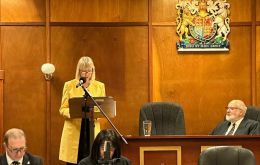
On 31st May, the Governor of the Falkland Islands made her annual address, state of the Nation, to the Legislative Assembly. In her speech, Alison Blake CMG reviewed last year's challenges and highlights, set out the government's and public service priorities for the year ahead, and paid tribute to the economy.
-
Wednesday, May 31st 2023 - 11:00 UTC
Minister Massa announces agreements for about US$ 1 billion
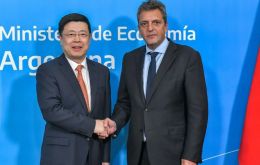
Argentina's Minister of Economy, Sergio Massa, announced from Shanghai that he has obtained financing for approximately US$ 1 billion for investments and disbursements that will strengthen the Central Bank's reserves.
-
Wednesday, May 31st 2023 - 10:50 UTC
Venezuela has a pending debt of US$ 1,27 billion with Brazil, official data
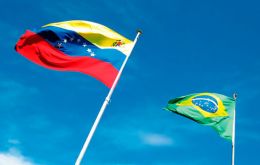
It's official, at the end of May, the Venezuelan debt to the Brazilian government amounted to approximately US$ 1.27 billion because of the non-payment of Brazilian goods and services covered by the Export Credit Insurance, subsidized by the Export Guarantee Fund (FGE). The information was officially provided by the Ministry of Development, Industry, Trade, and Services (Mdic).
-
Tuesday, May 30th 2023 - 10:55 UTC
Lula promises Maduro that integration “will be full”
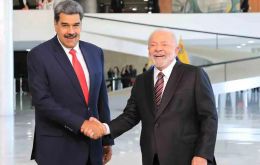
Brazilian President Luiz Inácio Lula da Silva Monday told his Venezuelan counterpart Nicolás Maduro at the Planalto Palace that the resumption of diplomatic ties between the two countries “will be full.” Maduro, who seldom travels abroad, is in Brasilia to attend Tuesday's Summit of South American leaders hosted by the continent's largest country.
-
Monday, May 29th 2023 - 20:31 UTC
Germany in technical recession, Eurozone expects zero growth
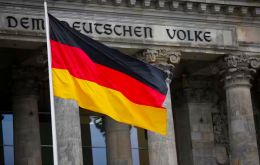
Beware the European Union, Germany has entered technical recession. Germany's economy shrunk slightly in the first quarter of 2023 compared with the previous three months, data showed. A preliminary estimate had shown gross domestic product (GPD) stagnating at zero growth in the first quarter — meaning Germany would have narrowly escaped a recession.
-
Monday, May 29th 2023 - 10:59 UTC
Argentina's race against time: Economy Minister seeks Chinese support to stay afloat

Argentina's Economy Minister Sergio Massa is due in China Tuesday, in a desperate bid to secure much-needed dollars for the government's survival and bolster its chances in the upcoming presidential elections. President Alberto Fernández, who recently announced that he would not seek re-election, has taken a backseat, allowing Massa to spearhead this crucial mission.
-
Friday, May 26th 2023 - 09:07 UTC
Argentina imposes more impediments to foreign trade; Central bank desperately short of US dollars
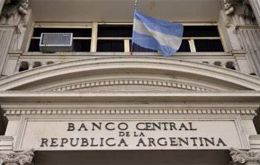
Given the financial problems and shortage of foreign currency, on Wednesday, May 24, the leading shipping company MSC, followed by seven others, announced that, as from June, ‘freight collect’ will be charged for exports from Argentina, meaning that these charges will be billed to the party receiving a shipment, often called the consignee.
-
Thursday, May 25th 2023 - 10:09 UTC
LatAm's business index falls below average figures

Paraguay remained the Latin American country with the highest projected growth for the year 2023, according to a Getúlio Vargas Foundation (FGV) study that also showed that the region has hit its poorest business climate in the last nine months, it was reported. Argentina is at the bottom of the list.
